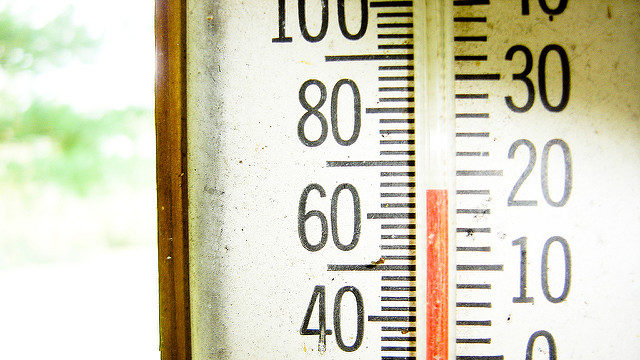Abstracts: Lead in Water, Crime and Climate Change, and More
• According to a new study, at least 18 million people were at risk of drinking lead-contaminated water last year. A new map may indicate if you were one of them, though the data is very likely incomplete. (Vox)

A new study found that, on average, each additional degree Celsius increase in annual temperatures was associated with a roughly 6 percent increase in homicides. (Visual by Andy Melton/Flickr)
• If heat is linked to increased crime rates, what happens when climate change pushes the temperature even higher? (Undark)
• New York University shut down eight psychiatric studies after investigators found lax oversight of participants, inaccurate case histories and falsified records. (New York Times)
• The cost of fighting wildfires is rising, but funding to combat them is limited. The U.S. Forest Service is considering labeling the worst fires as “natural disasters” in order to be able to use specially allocated federal funds. (Wired)
• Researchers found that the microbes living on the surfaces in Boston’s subway system are not much different from those that live on healthy human skin. (LA Times)
• A video from the BBC looks at just how big the largest known stars are. (BBC)
• Every year, millions of women undergo pelvic exams to prevent illnesses like ovarian cancer, but a new study suggests that they may actually have no medical benefit. (STAT)
• Reaching President Obama’s ambitious energy goals will depend on renewable and nuclear technology — but more than anything, it will depend on the next president. (MIT Tech Review)
• And finally, Britain’s decision to leave the EU could have negative consequences for its fishing industry. (Hakai Magazine)










